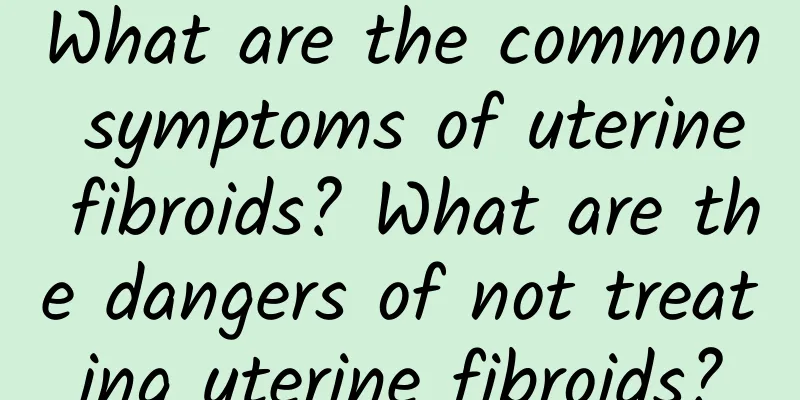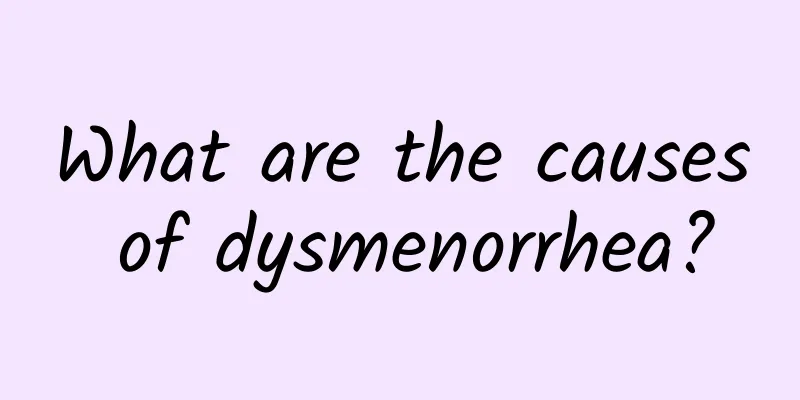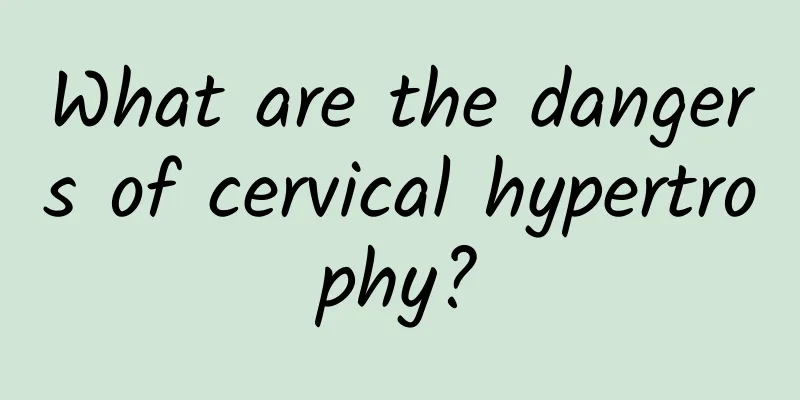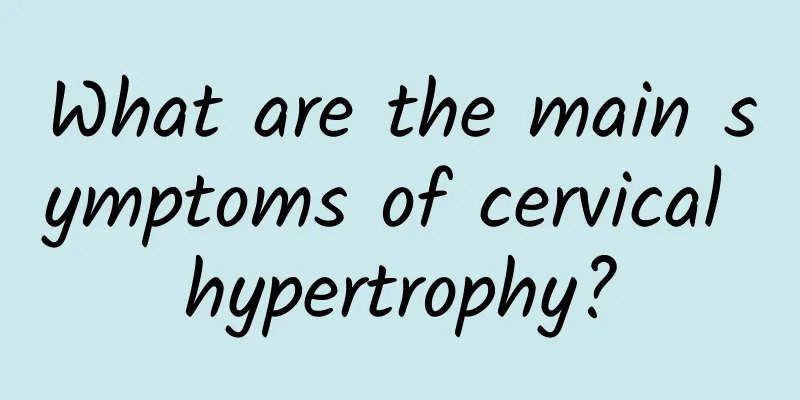What are the common symptoms of uterine fibroids? What are the dangers of not treating uterine fibroids?

|
In recent years, the incidence of uterine fibroids has gradually increased, and even younger, which has attracted the attention of many female friends. So, what are the symptoms of uterine fibroids? What are the harms of not treating them? The main symptoms of uterine fibroids are as follows. Female friends can pay more attention. 1. Constipation: normal bowel movements, sudden difficulty in defecation, and a feeling of urgency and heaviness. 2. Abdominal mass: When uterine fibroids gradually increase in size into the abdominal cavity, a hard and active mass can be felt in the lower abdomen in the morning when the stomach is empty or the bladder is full. 3. Anemia: Long-term excessive menstrual bleeding caused by uterine fibroids can lead to secondary anemia. In severe cases, it may manifest as symptoms such as general fatigue, pale complexion, shortness of breath, and palpitations. 4. Urgent and frequent urination: If there is no disease in the urinary system itself, urinary urgency and frequent urination will occur. Even if there is urination disorder and urinary retention, uterine fibroids will compress the bladder. 5. Excessive menstrual bleeding: This symptom usually occurs during the growth of uterine fibroids. When the fibroids are in the growth stage, the volume of the uterus will increase accordingly, thus disrupting the normal physiological function of the uterus. In addition, what are the dangers of not treating uterine fibroids? Here is a simple answer. 1. If uterine fibroids are not treated, it will lead to menorrhagia. Uterine fibroids mostly occur in submucosal and intramural fibroids, which manifest as menorrhagia, prolonged menstruation or irregular vaginal bleeding. 2. If uterine fibroids are not treated, they can cause compression symptoms in women. Fibroids located in the lower part of the uterus and cervix, if embedded in the pelvic cavity, can compress pelvic tissues and nerves, causing lower abdominal pain and back pain. 3. If uterine fibroids are not treated, it will affect pregnancy and delivery: endometrial hyperplasia, deformation of the uterus, affecting the implantation and development of the fertilized egg, can cause infertility. If you can get pregnant, sometimes insufficient blood supply or uterine stenosis will hinder the development of the fetus, leading to miscarriage and premature birth. When the pregnancy is full-term, uterine deformation can also cause the fetus to be in an incorrect position, and fibroids can hinder uterine contraction, leading to dystocia and postpartum hemorrhage. |
<<: Specific symptoms of uterine fibroids What is the best thing to eat if you have uterine fibroids
Recommend
What are the causes of recurrent pelvic inflammatory disease?
"What are the causes of recurrent pelvic inf...
What are the symptoms of female cervical hypertrophy?
Cervical hypertrophy has a certain impact on wome...
Experts introduce the treatment methods for female uterine fibroids
As the number of patients with uterine fibroids i...
How to confirm that it is ovulation bleeding?
How to confirm that it is ovulation bleeding? Ovu...
Symptoms of Uterine Fibroids Causing Abnormal Vaginal Discharge
Everyone knows that the earlier the symptoms of u...
What should I do if my leucorrhea is yellow during pregnancy? Go to the hospital for a check-up
If pregnant women find that their leucorrhea is y...
How can female friends prevent breast cysts?
Breast cyst is a common disease among women, with...
Where does the danger of congenital absence of vagina come from?
You should know that there are always various dis...
What does the cost of painless abortion include?
Painless abortion is a common type of abortion. H...
Distinguishing Ovarian Cysts from Ovarian Cancer on B-ultrasound
When B-ultrasound distinguishes between ovarian c...
Are the bleeding symptoms of cervical erosion serious? How to treat cervical erosion patients?
In life, the most common and main symptom of cerv...
How much does it cost to treat cervical erosion?
The cost of treating cervical erosion is the firs...
Experts analyze the causes of cervical erosion
Although cervical erosion is a common cervical di...
What should I do if my menstruation is delayed due to improper diet?
What should I do if my menstruation is delayed du...
What to do if a 15-year-old girl has irregular menstruation
What should I do if a 15-year-old girl has irregu...









